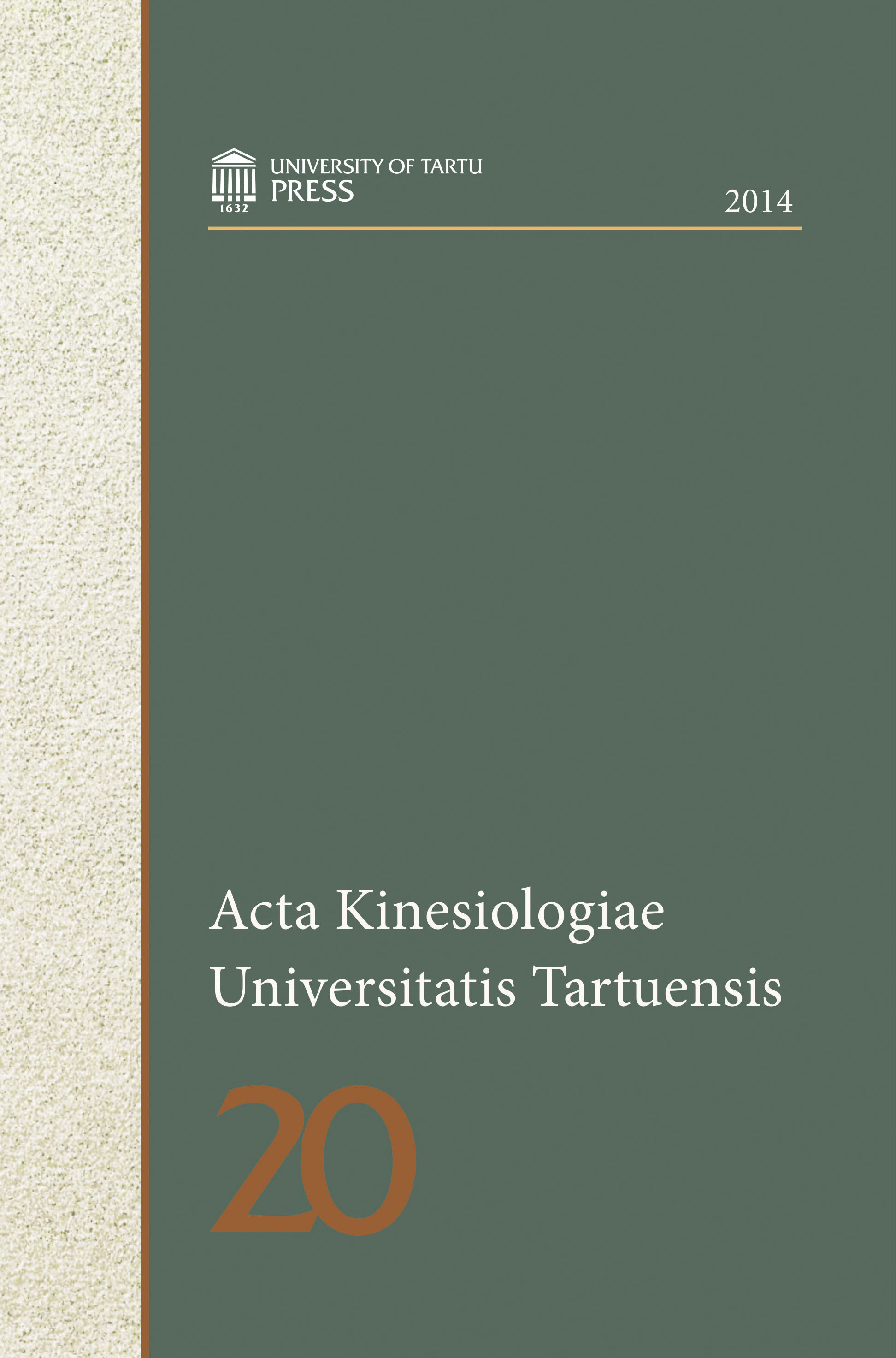Objectively measured school-based physical activity interventions for 6–12-year-old children in 2009–2014: a systematic review
DOI:
https://doi.org/10.12697/akut.2014.20.02Keywords:
physical activity, school-based intervention, active recess, activity break, additional PE lessonAbstract
Physical inactivity of children and youth is a growing problem all over the world. Th e promotion of physical activity (PA) is an essential strategy to improve the physical and mental health of students. The school setting is a good environment for population-based PA interventions. The purpose of the present study was to determine whether school-based PA interventions have influence on the PA level of children aged 6- to 12 years and to describe the main components of PA interventions. A literature selection was carried out including original articles describing school-based PA interventions for 6- to 12 years old children, objectively measured by accelerometers or pedometers, published 2009–2014. Seventeen relevant trials of sufficient quality performed in 10 different countries were identified. The analyses of articles revealed that active recess was the most wide-spread component of PA interventions, followed by activity breaks in lessons and PE lessons. Increase of PA was achieved in 16 analyzed studies, but multicomponent interventions and interventions, containing mandatory elements, seemed to be most effective.Downloads
Download data is not yet available.


